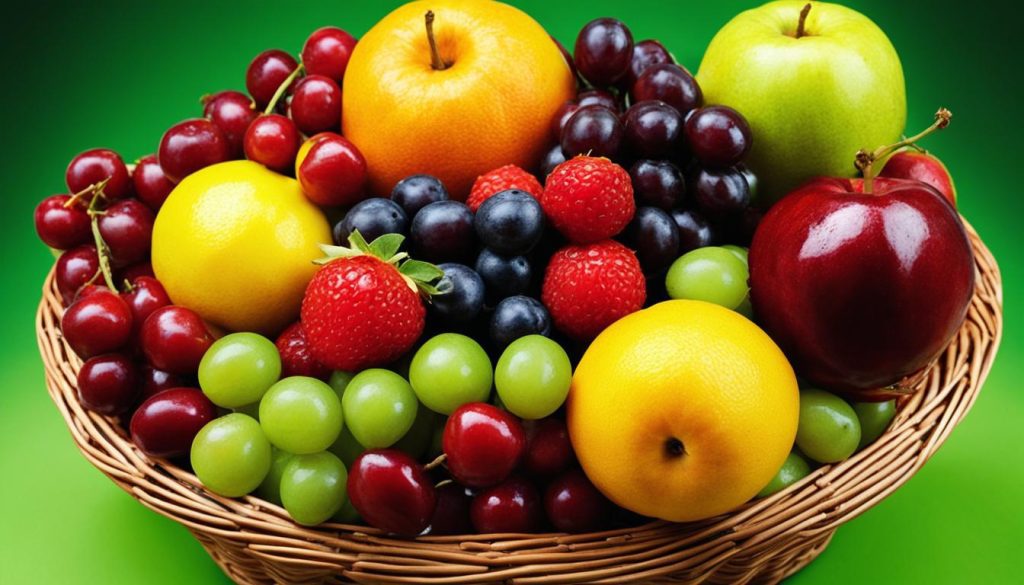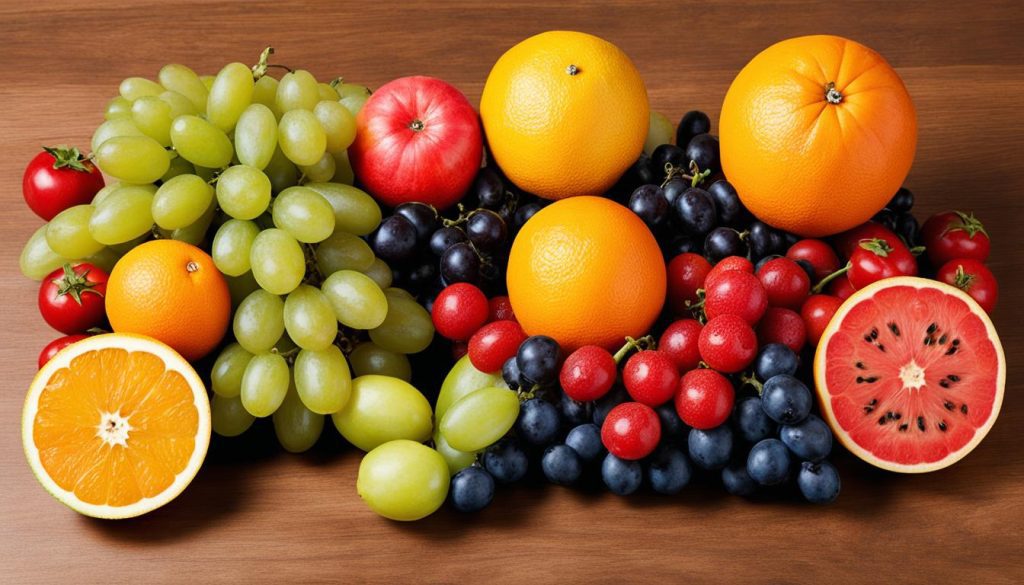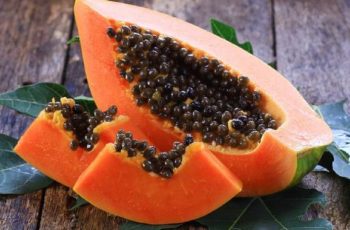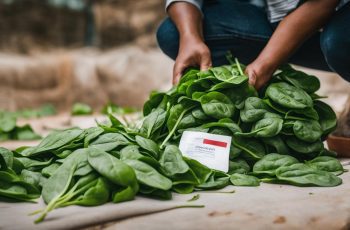When it comes to managing high blood pressure, making healthy food choices is essential. While fruits are generally considered a part of a balanced diet, there are certain fruits to avoid for high blood pressure or limited if you have hypertension. Avoiding these fruits can help you better control your blood pressure levels and reduce the risk of related health complications.
Fruits to Avoid for High Blood Pressure
- Avoiding certain fruits can help manage high blood pressure.
- Processed foods should be replaced with nutrient-rich whole foods.
- The DASH diet, which includes fruits like apples, is recommended for high blood pressure management.
- Excessive sodium intake from processed and fast foods can contribute to elevated blood pressure.
- Choosing lower sodium options and consuming fruits like apples can be part of a low-sodium diet for managing high blood pressure.
Fruits to Avoid with Hypertension:
- Bananas: While bananas are a nutritious fruit, they are also high in potassium. Excessive potassium intake can be problematic for individuals with high blood pressure who may already have elevated potassium levels.
- Coconut Water: Although coconut water is a popular hydrating beverage, it is naturally high in sodium, which can negatively affect blood pressure.
- Pomegranates: Pomegranates are known for their antioxidant properties, but they can also have a mild blood pressure-elevating effect.
It’s important to note that these fruits may not affect everyone with high blood pressure in the same way. Consulting with a healthcare professional or a registered dietitian can provide personalized recommendations based on your individual condition.
The Impact of Salt and Sodium
Excessive sodium intake can contribute to elevated blood pressure. It’s important to be mindful of the sodium content in our diet, particularly when dealing with high blood pressure or hypertension. Many processed and fast foods contain high levels of sodium, which can exceed the daily recommended limit of 2,300mg. Foods such as burgers, pizza, sandwiches, cold cuts, canned soups, and Mexican food often have a high sodium content.
To manage high blood pressure, it’s crucial to be aware of the sodium content in the foods we consume. This can be done by reading nutrition labels and choosing lower sodium options. By reducing our intake of high sodium foods, we can make a positive impact on our blood pressure levels.
The Importance of Fruit Choices for Hypertension
When it comes to managing high blood pressure, incorporating fruits into our diet is beneficial. Fruits like apples and bananas, which are naturally low in sodium, can be excellent choices for those looking to limit their sodium intake.
Fruits not only provide essential nutrients and fiber, but they also contain antioxidants that can help maintain heart health. They are a great alternative to processed snacks or desserts that often contain high levels of sodium and added sugars. The natural sweetness of fruits can satisfy our cravings while being a healthier option.
By choosing fruits that are low in sodium, we can enjoy a wide variety of options while managing our blood pressure. Incorporating fruits into our diet is a delicious way to support our overall cardiovascular health.
Some fruits to consider for managing high blood pressure:
- Apples
- Strawberries
- Blueberries
- Watermelons
By including these fruits in our diet, we can make fruit choices that support our goals of managing high blood pressure and promoting overall health.
The Role of Sugar
When it comes to managing high blood pressure, it is important to pay attention to your sugar intake. Consuming foods and drinks high in added sugars can increase the risk of hypertension. Research suggests that fructose, a type of sugar, may contribute to elevated blood pressure levels.
Processed desserts, crackers, granola bars, and even some types of peanut butter may contain high fructose corn syrup, which is a common source of added sugars. These sweet treats may be tempting, but indulging in them frequently can have negative effects on your blood pressure.

So, what can you do to lower your blood pressure? Choose fresh fruits as a healthier alternative to satisfy your sweet cravings. Fruits, such as strawberries, watermelon, and apples, are naturally sweet and can provide essential nutrients and fiber that support overall heart health.
It’s also important to be mindful of your beverage choices. Sugary drinks like sodas, fruit juices, and energy drinks can also contribute to high blood pressure. Opt for water, unsweetened teas, or infused water with slices of fresh fruits for a refreshing and hydrating beverage option.
By reducing your consumption of sugary foods and beverages, and incorporating fresh fruits into your diet, you can take proactive steps towards maintaining a healthy blood pressure level. Remember, when it comes to hypertension, some fruits are not your best choice, but there are plenty of delicious and nutritious options to enjoy!
Red Meat and Blood Pressure
When it comes to managing high blood pressure, it’s important to be mindful of the types of foods we consume. Among these, red meat, especially processed red meat, is known to potentially raise blood pressure levels. This is due to the compounds released during the metabolism of red meat that can further elevate blood pressure.
To maintain healthy blood pressure levels, it is recommended to limit portion sizes and consider leaner cuts of meat or unprocessed alternatives. Incorporating fruits into your diet can also be beneficial in managing blood pressure and reducing the consumption of red meat. Some fruits that can support this endeavor include berries and citrus fruits.
Berries, such as strawberries and blueberries, are packed with vitamins, minerals, and antioxidants that promote heart health. Citrus fruits like oranges and grapefruits are rich in potassium, a mineral known to help regulate blood pressure.
To make it easier to incorporate these fruits into your diet, you can enjoy them as snacks, add them to salads, or even use them as toppings for yogurt or whole-grain cereals. By focusing on reducing red meat consumption and including these fruits, you can take proactive steps towards managing your blood pressure.
Sugary Drinks and Alcohol
When it comes to managing high blood pressure, it’s important to pay attention to not just the foods you eat but also the beverages you consume. Sugary drinks can have a negative impact on your blood pressure levels. They not only contribute to weight gain but also contain high amounts of added sugars that can raise blood pressure.
Many sugary drinks also contain caffeine, which can further elevate blood pressure. This includes popular beverages like soda, fruit juices, and energy drinks. While they may be refreshing, it’s crucial to be cautious of these sugary thirst quenchers as they can have detrimental effects on your blood pressure.
Furthermore, excessive alcohol consumption is also known to raise blood pressure and increase the risk of heart disease. Alcohol can disrupt the normal functioning of your cardiovascular system and lead to hypertension. To maintain healthy blood pressure levels, it’s recommended to limit your alcohol intake and opt for healthier alternatives like flavored water or herbal tea.
By avoiding sugary drinks and moderating your alcohol consumption, you can take proactive steps towards managing your blood pressure and promoting overall heart health.

Avoiding Saturated Fats
Foods high in saturated fats can contribute to high blood pressure. It is important to be mindful of the types of foods we consume to maintain a heart-healthy diet. Some examples of foods containing saturated fats include desserts, processed meats, cooking fats, oils, and full-fat dairy products.
To reduce the risk of hypertension, it is recommended to limit the intake of both saturated and trans fats. Instead, opt for healthier alternatives such as nuts, seeds, olive oil, and avocado. These plant-based options can help lower blood pressure and provide essential nutrients for overall well-being.
Incorporating fruits into a diet focused on avoiding saturated fats can be beneficial. Fruits such as strawberries and watermelon are not only delicious but also low in saturated fats. Including these fruits in your meals and snacks can contribute to a balanced diet and support your blood pressure management goals.
Conclusion
Managing high blood pressure requires making smart food choices and being mindful of certain fruits and foods that can contribute to elevated blood pressure levels. Incorporating a variety of fruits and vegetables, lean protein sources, whole grains, and low-fat dairy products into a heart-healthy diet is highly recommended for individuals looking to maintain healthy blood pressure levels.
To effectively manage high blood pressure, it is crucial to limit the intake of sodium, added sugars, red meat, and saturated fats. By reducing the consumption of these dietary components, individuals can take control of their blood pressure and promote overall heart health.
When selecting fruits for a hypertensive diet, it is important to choose fruits that are low in sodium, added sugars, and saturated fats. Opt for nutrient-dense fruits like apples, bananas, strawberries, and berries to ensure you are getting essential vitamins, minerals, and fiber without negatively impacting your blood pressure. Remember, fresh fruits are a much healthier choice compared to sugary beverages and processed desserts, which can potentially raise blood pressure.
By following these dietary guidelines and maintaining a heart-healthy lifestyle, you can effectively manage your high blood pressure, reduce the risk of complications, and work towards a healthier future.
FAQ
What are some fruits to avoid for high blood pressure control?
While fruits are generally considered healthy, there are a few that should be limited if you have high blood pressure. These include bananas and oranges, as they are high in potassium, which can raise blood pressure in some individuals.
How does salt and sodium impact blood pressure?
Consuming too much sodium can contribute to elevated blood pressure. It’s important to limit sodium intake by avoiding processed and fast foods, which are often high in sodium. Instead, choose lower sodium options and season your meals with herbs and spices.
Can certain fruits raise blood pressure?
While fruits are generally healthy, some individuals with high blood pressure may need to limit their intake of high-sodium fruits like canned fruit in syrup or fruit cups. It’s important to choose fresh, low-sodium fruits like berries or apples instead.
Does red meat affect blood pressure?
Red meat, especially processed red meat, may raise blood pressure. It is recommended to limit portion sizes and choose leaner cuts or unprocessed meats as alternatives. Including fruits like berries and citrus fruits in your diet can help manage blood pressure along with reducing red meat consumption.
What about sugary drinks and alcohol?
Consuming sugary drinks can contribute to high blood pressure. It’s best to avoid sodas, fruit juices, and energy drinks. Excessive alcohol consumption can also raise blood pressure and increase the risk of heart disease. Choose healthier alternatives like flavored water or herbal tea.
Are there fruits that should be avoided due to saturated fats?
Fruits themselves do not contain saturated fats. However, when it comes to managing blood pressure, it is important to avoid foods high in saturated fats, such as desserts, processed meats, cooking fats, oils, and full-fat dairy products. Opt for plant-based alternatives like nuts, seeds, olive oil, and avocado. Fruits like strawberries and watermelon can be part of a diet focused on avoiding saturated fats.
What is the significance of fruit selection in managing high blood pressure?
While it is important to limit certain fruits for individuals with high blood pressure, overall, a diet rich in fruits and vegetables is recommended for managing blood pressure. Fruits like apples, strawberries, and watermelon are generally beneficial. It’s important to find the right balance and incorporate a variety of fruits into a heart-healthy diet.




